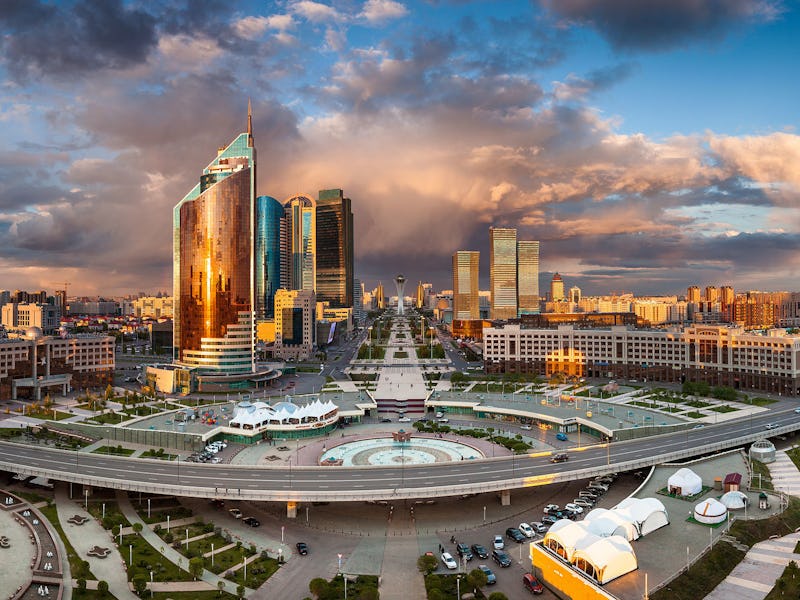Kazakhstan Pledges Shift to 50 Percent Renewable Energy by 2050
We're way behind, says Bill Nye.

The Paris Climate Accord has many countries excited about actually reducing greenhouse gas emissions. Even nations with rich fossil fuel reserves are carrying the banner of green energy, a powerful sign that the shifting climate landscape is radically altering how countries are calculating their interests.
Fossil fuel production constitutes 17 percent of Kazakhstan’s GDP, yet the Foreign Minister Erlan Idrissov just announced the country is planning to shift to 50 percent renewable energy by 2050. For some perspective, in 2015, the United States generated just 13 percent of its energy from green sources, like wind, solar, and hyrdo.
In an address to the United Nations General Assembly, Idrissov promised that Kazakhstan would sign the Paris Climate deal and make the necessary changes to fulfill its obligations.
“Although our country is rightly known for its abundance of conventional energy resources, we are absolutely committed to developing green economy,” Idrissov said. “We have set ourselves ambitious goals, for example, to generate 50 percent of our electricity from non-fossil fuel sources by 2050.”
That famous Kazakhstan snark is perfectly appropriate in this instance. It is pretty incredible how some nations are bearing the brunt of shifting to green energy, while others seem to be coasting on their backs. The United States produces the second most emissions in the world, behind only China, and the third most emissions per capita, behind only Saudi Arabia and Australia respectively. And we could be doing way more to shift to renewables, we’re just not doing it.
In a recent Twitter chat, Bill Nye talked about how quickly the United States could convert its entire economy to 100 percent renewable energy, and the answer is far less daunting than one would imagine.
“We could certainly do almost all of it, here in the United States, by 2050,” Nye said, adding ominously: “If we wanted to.”
That’s pretty good, and we could even make a huge dent in our emissions sooner than that, but we would have to work really hard at it.
“We could be 80 percent renewable, electrified ground transportation by 2030, less than 20 years, if we got to work on it,” Nye said.
So even as nations like Kazakhstan lead the jump to renewables, the United States doesn’t have to lag behind, but for some reason we always do. At this point, though, we have the technology, so, according to Bill Nye, we just need the will.
“You have to be optimistic. You have to believe you can make the journey or you won’t start on that single step.”
Kazakhstan has as many reasons as the United States to defer action on climate change and carbon emissions, but rather than waiting, its leaders are boldly seizing the opportunities posed by future needs. It’s a lesson we need to learn, and fast.